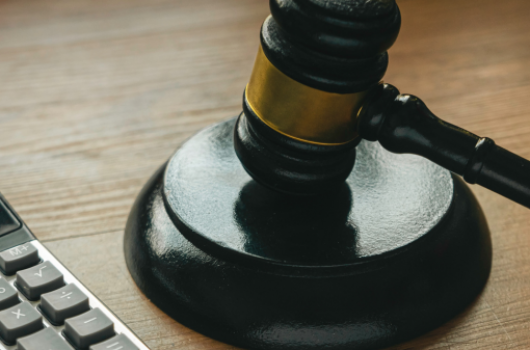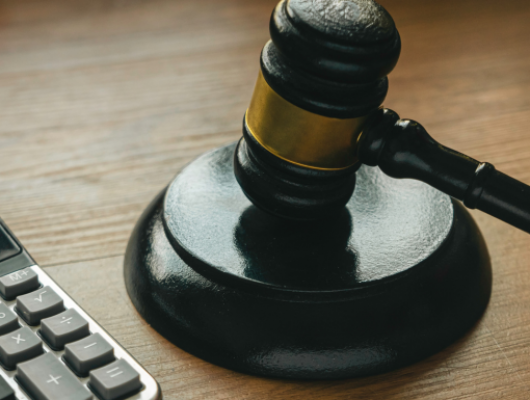Have you been charged with refusing to undergo an assessment for drug impairment?
- Over 30 years experience in the criminal justice system
- Track record of success
- Nationally acclaimed expertise
Free Legal Advice 24/7
-
Driving While Impaired by a Drug
-
Exceeding the Prescribed Concentration of Drugs Present in the Body
-
Driving Over the Concentration of Drug and Alcohol Limit
-
Refusing to Undergo an Assessment for Drug Impairment
-
Refusing to Comply With Directions to Provide Additional Samples for Analysis
-
Refusing to Undergo an Oral Fluid Test
-
Exceeding the Prescribed Concentration of an Illicit Drug (Blood Analysis) within 3 Hours of Driving or being in Charge of a Motor Vehicle
-
Expca (Blood Analysis) of Alcohol and Drugs Within 3 Hours of Driving of Being in Charge of a Motor Vehicle
What does it mean to refuse to undergo an assessment for drug Impairment?
Under section 49(1)(ca) of the Road Safety Act (“RSA”), a person commits an offence if they refuse to undergo a drug impairment assessment when required to do so by police (section 55A). This includes refusing to follow any related instructions, such as providing an oral fluid or blood sample.
Even if specific conditions are not met—such as the assessment not being carried out in a proper location, or a police officer not being authorised to conduct the assessment—the person can still be found guilty of the offence.
What the Prosecution Must Prove:
For a charge under section 49(1)(ca) (refusing to undergo a drug impairment assessment), the prosecution must prove the following elements beyond a reasonable doubt:
- You were lawfully required by a police officer to undergo a drug impairment assessment under section 55A of the Act.
- You refused to undergo the assessment or failed to comply with a requirement made under section 55A(1).
- This could include refusing to provide a sample or refusing to follow instructions related to the assessment.
- The police officer making the request was authorised to do so under the Road Safety Act, even if certain conditions, such as location or the presence of an authorised officer, were not met, as allowed by section 49(1A)(b).
- You did not have a valid legal defence for refusing to comply, such as proving that the requirement was unreasonable or unlawful.
When would you undergo a drug impairment test?

Section 55A allows a police officer to require a person to undergo a drug impairment test if they:
- Are driving or in charge of a motor vehicle
- Are stopped at a preliminary testing station
- Were believed to be driving or in charge of a vehicle within 3 hours of an accident
- Were believed to be a passenger in a vehicle involved in an accident within the last 3 hours

What does refusal to take a test look like?
Refusing to take the test can happen either by saying no or by your actions. Refusal can include:
- Saying no to the officer’s request
- Refusing to go with the police to take the test
- Physically preventing the test from being done
What are the rules of the test?
There are rules the police must follow when conducting the test, including:
- The officer must be authorised to conduct drug impairment assessments
- The test must follow legal procedures
- The test should be recorded on video (unless special circumstances apply)
- A copy of the video must be provided to the accused
If the police don’t follow these rules, the test might not be accepted as evidence in court.
Under section 49(1A), even if the officer isn’t authorised or the request isn’t made at the test location, refusing the request is still an offence.
The licence disqualification for refusing a test is twice as long as for someone who takes the test but is found impaired.
The penalties for refusing a drug impairment assessment:

The penalties depend on whether it’s a first or subsequent offence:
- First offence: A fine of up to 12 penalty units.
- Second offence: A fine of up to 120 penalty units or up to 12 months in prison.
- Further offences: A fine of up to 180 penalty units or up to 18 months in prison.
You will also risk licence disqualification.
The severity of the penalties increases with repeat offences.

Where will my case be heard?
Refusing to Undergo Assessment for Drug Impairment cases will be heard will be heard in the Magistrates Court.
Factors and defences to consider:
- Were you driving or in charge of a vehicle when stopped by police?
- Had you taken drugs prior or during this stop?
- Did you refuse to undergo a drug impairment assessment?
- Did you undertake the test but fail it? Or not perform it correctly?
- Did the police correctly conduct this test?
- Do you have any prior convictions of a similar nature?
- What were the surrounding circumstances of this offence?
Testimonials
What people Say
St Kilda, Victoria 3182
1800 130 120
-
Michael Sunderland from MK Law handled my matter with professionalism, respect, and genuine care. It was clear that he genuinely cared about gett... Read MoreMichael Sunderland from MK Law handled my matter with professionalism, respect, and genuine care. It was clear that he genuinely cared about getting the best result possible, and his preparation and courtroom presence reflected that commitment. Michael’s professional demeanour and respectful conduct, both with me and within the court, gave me the utmost confidence I was in the right hands. He clearly explained the process, kept me informed, and made me feel confident throughout. The outcome was far better than I expected, thanks to his expertise and strategic approach. I’m truly grateful for his support and wouldn’t hesitate to recommend him. Read Less55/5
-
I want to sincerely thank my lawyer Mr Daniel Moon for representing me so well in court. He made me feel comfortable, as it was my first experienc... Read MoreI want to sincerely thank my lawyer Mr Daniel Moon for representing me so well in court. He made me feel comfortable, as it was my first experience in court. I liked his professionalism, preparation, confidence and attention to details. He explained everything clearly, guided me step by step, and fought for the best possible outcome for me. With him handling my case, it gave me a peace of mind during a very stressful time. The outcome spoke volumes about his expertise, and I would highly recommend them to anyone in need of strong legal representation. Read Less55/5
-
I cannot thank Michael Sunderland from MK Law enough for the way he handled my case. From the very beginning, Michael was highly professional, kno... Read MoreI cannot thank Michael Sunderland from MK Law enough for the way he handled my case. From the very beginning, Michael was highly professional, knowledgeable, and thorough in every aspect of the process. He took the time to explain everything clearly, which gave me great comfort and confidence throughout what could have been a very stressful time. Michael’s expertise and guidance reassured me that I was in the best hands, and his calm and confident approach made a huge difference to my peace of mind. He was always approachable, responsive, and dedicated to achieving the best possible outcome for me. I would highly recommend Michael Sunderland to anyone seeking a lawyer who is not only exceptionally skilled but also genuinely cares about his clients. Read Less55/5
-
I would like to sincerely thank Ashleigh for her exceptional support and professionalism during a very difficult time in my life. From the first m... Read MoreI would like to sincerely thank Ashleigh for her exceptional support and professionalism during a very difficult time in my life. From the first meeting, she was calm, respectful, and clear about what I could expect. She never judged me, always listened carefully, and explained every step of the legal process in a way that made me feel supported and confident. Ashleigh handled my case involving a traffic offence with care and honesty. She gave me solid advice, helped me prepare all the right documents, and even guided me on how to speak respectfully in court. Because of her help, I was able to present myself properly before the judge and achieve a much better outcome than I expected. What really stood out to me was her genuine concern for my future. She didn’t treat me like “just another case.” Ashleigh is not only a skilled lawyer — she is also a kind person who truly cares about her clients. I highly recommend Ashleigh to anyone in need of legal help. She is trustworthy, professional, and goes above and beyond for her clients. Thank you again for everything. Read Less55/5
-
Driving While Impaired by a Drug
-
Exceeding the Prescribed Concentration of Drugs Present in the Body
-
Driving Over the Concentration of Drug and Alcohol Limit
-
Refusing to Undergo an Assessment for Drug Impairment
-
Refusing to Comply With Directions to Provide Additional Samples for Analysis
-
Refusing to Undergo an Oral Fluid Test
-
Exceeding the Prescribed Concentration of an Illicit Drug (Blood Analysis) within 3 Hours of Driving or being in Charge of a Motor Vehicle
-
Expca (Blood Analysis) of Alcohol and Drugs Within 3 Hours of Driving of Being in Charge of a Motor Vehicle
What to Do Next?
If you have been charged with refusing to undertake a drug impairment assessment, it’s crucial to act quickly and effectively to protect your legal rights and ensure the best possible outcome.
Now is the time to make sure that you have a lawyer who can give you sound advice, help you prepare your evidence, and discuss the key issues to be addressed in your matter. Preparation is essential to the success of any case, especially if your driver’s licence is important to your livelihood and daily life
Importance of Legal Representation
Facing court without legal representation can put your rights at risk. A lawyer will not only help you understand the charges but also navigate the court process and build a strong case on your behalf. In cases where your licence is on the line, having professional guidance is especially important.
For example, under section 50AA of the Road Safety Act (RSA), if you have a conviction for a driving offence more than 10 years ago, it will not be counted as a prior offence for the purposes of disqualification. However, the Magistrate still has the discretion to disqualify you from driving for longer than the mandatory two-year minimum, even if there’s more than 10 years between offences.
Immediate Licence Suspension
If you’ve been charged, the police may have already suspended your licence under section 85A. This Licence suspension prevents you from driving until your case is determined in court. However, this suspension can be appealed, and a lawyer can assist you in making this application while awaiting your court date.
MK Law today on 1800 130 120 to ensure you have the right legal support. We will guide you through the legal process, help you prepare your defence, and ensure that your rights are protected every step of the way. Our experienced team understands how vital your licence is, and we will work with you to achieve the best outcome possible.
Contact us now to get the legal advice and representation you need.
Free Legal Advice 24/7
Contact Us
Call Anytime For Free Legal Advice 24/7
Top 5 firms by reputation dealing with traffic and criminal law matters.
- 2/212 Barkly Street, St Kilda Victoria, 3182 Australia
- 1800 130 120
- marcus@mklawfirm.com.au